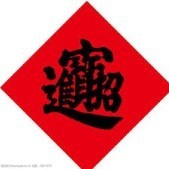-
Posts
14379 -
Joined
-
Last visited
-
Days Won
206
Content Type
Profiles
Forums
Events
News & Reviews
Everything posted by Huat Zai
-
One of the country’s largest food sanitation service providers has paid $1.5 million in penalties for illegally employing at least 102 children to clean 13 meatpacking plants on overnight shifts, the Labor Department announced Friday. The company, Packers Sanitation Services, allegedly employed minors as young as 13 to use dangerous chemicals to clean “razor-sharp saws,” head splitters and other high-risk equipment at meatpacking facilities in eight states, mostly in the Midwest and the South. The plants are operated by some of the country’s most powerful meat and poultry producers, including JBS Foods, Tyson and Cargill. Those companies were not charged or fined. Investigators learned in recent months that at least three children suffered injuries, including a chemical burn to the face, while cleaning slaughterhouses in the middle of the night. “The child labor violations in this case were systemic and reached across eight states, and clearly indicate a corporate-wide failure by Packers Sanitation Services at all levels,” said Jessica Looman, principal deputy administrator of the Labor Department’s wage and hour division, in a statement. “These children should never have been employed in meat packing plants and this can only happen when employers do no take responsibility to prevent child labor violations from occurring in the first place.” The Labor Department found that at least 27 children worked at night cleaning a JBS Beef Plant in Grand Island, Neb. Another 26 children cleaned a Cargill meat-processing facility in Dodge City, Kan. Packers Sanitation Service’s payment of $1.5 million in civil penalties on Feb. 16 is the result of a federal investigation that began in August. “We are pleased to have finalized this settlement figure as part of our previously announced December resolution with the Department of Labor that ends their inquiry,” said Gina Swenson, a Packers spokesperson. “We have been crystal clear from the start: Our company has a zero-tolerance policy against employing anyone under the age of 18 and fully shares the DOL’s objective of ensuring full compliance at all locations.” Swenson added that as soon as Packers became aware of the Labor Department’s investigation, the company conducted several audits of its employee base and hired a third-party law firm to improve its policies. The firm’s audits confirmed that the minors identified by the government as under the age of 18 no longer work for the company. Swenson added that Packers uses the federal E-Verify system for new hires, as well as biometric data collection. The Fair Labor Standards Act of 1938 prohibits all minors from working in hazardous occupations, which regulators have defined to include sanitation in meatpacking facilities. It also prohibits children under the age of 14 from working, and children between the ages of 14 and 15 from working past 7 p.m. or for more than three hours on school days. Court records allege that a 13-year-old working for Packers at a JBS Beef plant in Grand Island, Neb., suffered chemical burns. A 14-year-old worker who also suffered burns cleaned meat-cutting machines during 11 p.m. to 5 a.m. shifts, then went to school and fell asleep in classes or missed school completely, investigators said. In November, the Labor Department filed a complaint in federal court in Nebraska, and a judge responded by issuing a temporary restraining order forbidding Packers from violating child labor laws. Packers said in a court filing in December that when the Labor Department identified “two handfuls of alleged minors by name" working at their facilities, the sanitation firm quickly terminated “any such named individuals still working” at the company. “Our investigation found Packers Sanitation Services’ systems flagged some young workers as minors, but the company ignored the flags," Michael Lazzeri, a Labor Department administrator in Chicago, said in a statement. Lazzeri added that when the Labor Department brought search warrants to the facilities, the adults who had hired and supervised the minors “tried to derail our efforts to investigate their employment practices.” https://www.washingtonpost.com/business/2023/02/17/child-labor-meatpacking-department-of-labor/
-
https://www.youtube.com/playlist?list=PLlbw4GbOw5Dt97mJonCyDPjokO-YsAHU2 Nice to see new pagan music @chamfer
-
Unfortunately, we're not always the good guys.
-
SINGAPORE — The Police said yesterday that Sim Kwok Sng Dominic was arrested by the Commercial Affairs Department (CAD). The 45-year-old Singaporean who was under investigation by the Commercial Affairs Department (CAD), left Singapore and returned on 13 February 2023. He was arrested by the CAD on arrival. Sim was charged in court on 15 Feb 2023 with one count of knowingly being party to the carrying on of a business for a fraudulent purpose under Section 340(5) of the Companies Act, in relation to a wine buyback investment scheme operated by Universal Assets Group Pte Ltd (UAG) in 2008. Sim was a director of UAG at that time. The offence is punishable with a fine not exceeding $15,000 or imprisonment for a term not exceeding seven years, or both. The Police added that investigations are ongoing. The wine industry has always been a lucrative investment option for many individuals looking to diversify their portfolios. However, in the years 2008, 2009, and 2010, Singapore witnessed a major wine investment scandal that shook the entire industry. The scandal involved the sale of fake wines to investors, which resulted in significant financial losses for many individuals. The wine investment scandal in Singapore involved several companies, including Noble Vintners, Wine Boss, and Universal Vintners. These companies sold investment-grade wines to their clients, claiming that the wines would appreciate in value over time. However, it was later discovered that the wines sold to investors were counterfeit, and the actual value of the wines was significantly lower than the amount paid by investors. The scandal was first brought to light in 2008 when investors started to realize that the wines they had purchased were not genuine. Many investors who had invested large sums of money in these wines found that their investments had lost value, and some had lost their entire investments. As the scandal began to unravel, more and more investors came forward, and the total amount of losses reached millions of dollars. The wine investment scandal in Singapore was a complex and sophisticated scheme that involved the creation of fake wines and the manipulation of wine prices. The counterfeit wines were created by blending cheaper wines with expensive ones, making them difficult to detect. The fraudsters would then inflate the price of these counterfeit wines, making them appear to be worth much more than they actually were. The impact of the wine investment scandal was significant, not only for investors but also for the wine industry as a whole. Many investors lost trust in the wine investment market, and the reputation of the industry was tarnished. The scandal also led to a decline in wine sales in Singapore, as investors became more cautious about investing in wines. The authorities in Singapore took swift action to address the issue, and several individuals involved in the scam were arrested and charged with fraud. The Monetary Authority of Singapore (MAS) also introduced new regulations to improve investor protection and to prevent such scams from happening again in the future. The wine investment scandal in Singapore was a significant event that had far-reaching consequences for the industry and investors. The scandal highlighted the importance of due diligence when making investment decisions and the need for investors to be cautious when investing in alternative asset classes. While the authorities in Singapore have taken steps to improve investor protection, it is essential for investors to do their own research and seek professional advice before making any investment decisions. https://theindependent.sg/company-director-charged-under-companies-act-in-relation-to-wine-buyback-scheme/
-
Genuinely hope that he doesn't have any accident near windows, Russia needs more peaceful leaders.
- 1 reply
-
- 1
-

-
Unlikely, most likely
-
Heng I didn't have that problem
-
-
-
the song also not bad
-
lol ya, when I first heard it also WTF. Turns out 13 is the Federal age, but basically every State in Japan is 16. Their laws are complicated.
-
TOKYO: A Japanese justice ministry panel on Friday (Feb 17) proposed raising the country's age of consent, currently among the world's lowest at just 13, as part of a major overhaul of sex crime legislation. The move to raise the age of consent to 16 is part of a package of reforms that would also clarify rape prosecution requirements and criminalise voyeurism. The recommendations presented to the justice minister come after a series of rape acquittals that sparked outcry, and will form the basis for draft amendments that could be enacted by parliament later this year. Japan's age of consent, the lowest among the G7 industrialised nations, has stayed unchanged since its enactment in 1907. The age of consent is 16 in Britain and South Korea, 15 in France, and 14 in Germany and China. Under current Japanese law, children at least 13 years old are considered capable of consent, meaning sexual activity with them is not considered statutory rape. This has meant even teen rape survivors face the same high bars to prosecuting perpetrators that adults do. In practice, regional ordinances banning "lewd" acts with minors are sometimes seen as effectively raising the age of consent to 18 in many parts of Japan. But they come with significantly lighter penalties than rape charges and deem sex with children merely "unethical" conduct, "completely discounting its forced nature", Kazuna Kanajiri, an activist fighting pornography and sexual exploitation, told AFP. This leaves room for perpetrators to "shift blame to the victims, and argue that sex was initiated or enjoyed by the children", said Kanajiri, who heads Tokyo-based group PAPS and welcomes plans to raise the age of consent to 16. "VIOLENCE AND INTIMIDATION" Teen couples who are no more than five years apart in age would be exempt from prosecution if both partners are over 13. Japan last revised its criminal code on sexual offences in 2017, for the first time in more than a century, but campaigners said the reforms were insufficient. And in 2019, a string of acquittals in rape cases triggered nationwide rallies. Among the most controversial provisions in the existing law is a requirement that prosecutors prove rape perpetrators used "violence and intimidation" to incapacitate victims. Critics have argued that the requirement effectively blames victims for not resisting enough, and say survivors can freeze during assaults or submit to avoid further injury. The justice ministry panel did not scrap the wording but clarified it covers drugging, catching victims off-guard and psychologically controlling them. The clarification "isn't meant to make it easier or harder" to secure rape convictions, but "will hopefully make court verdicts more consistent", justice ministry official Yusuke Asanuma said. Campaigners have welcomed the move as a step forward though it "still fails to meet international rape legislation standards", advocacy group Human Rights Now said in a statement. Japan, it added, should redefine "the crime of rape as all non-consensual sexual intercourse". The panel also proposed a new offence covering the act of secretly filming someone for sexual purposes, and lengthening the statute of limitations for sexual violence against minors, to allow them more time to come forward. https://www.channelnewsasia.com/asia/japan-weighs-lifting-age-consent-13-3286106






